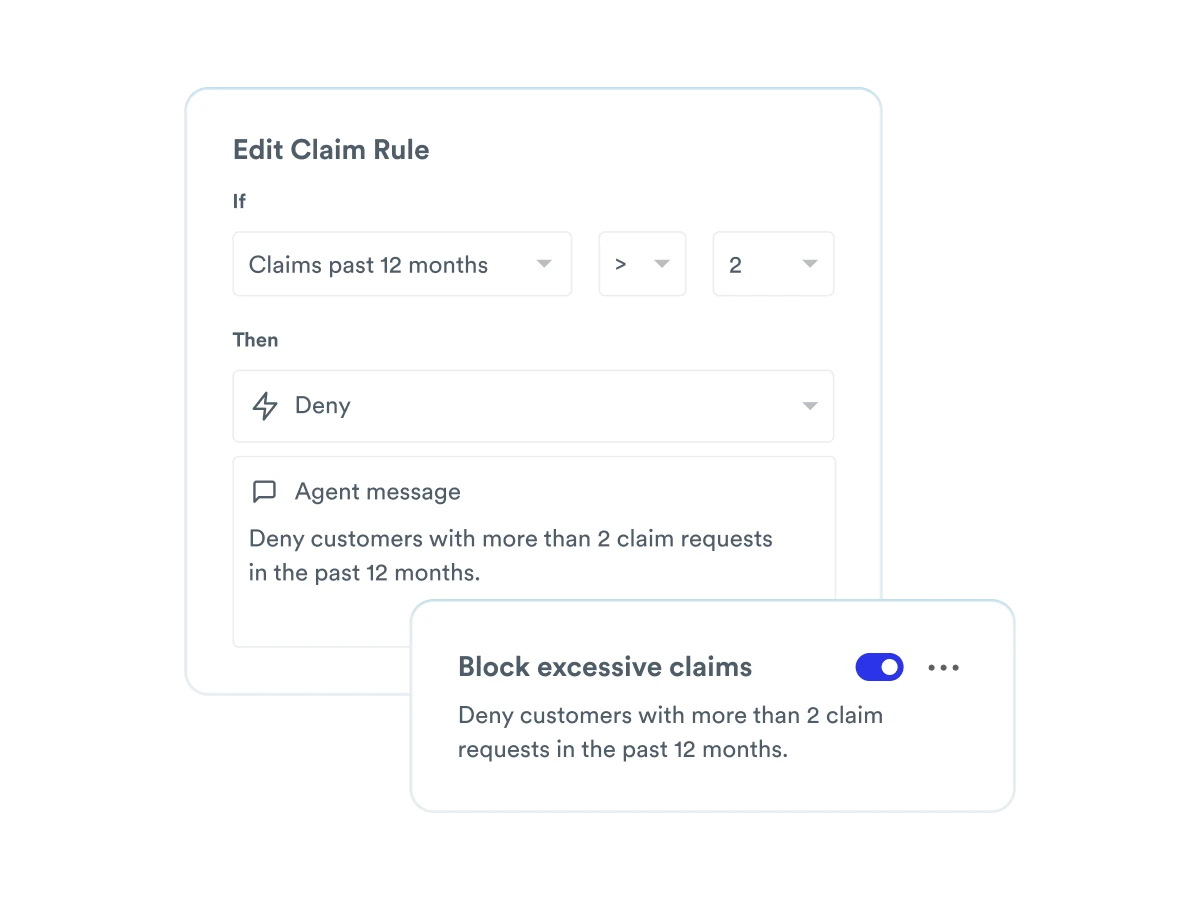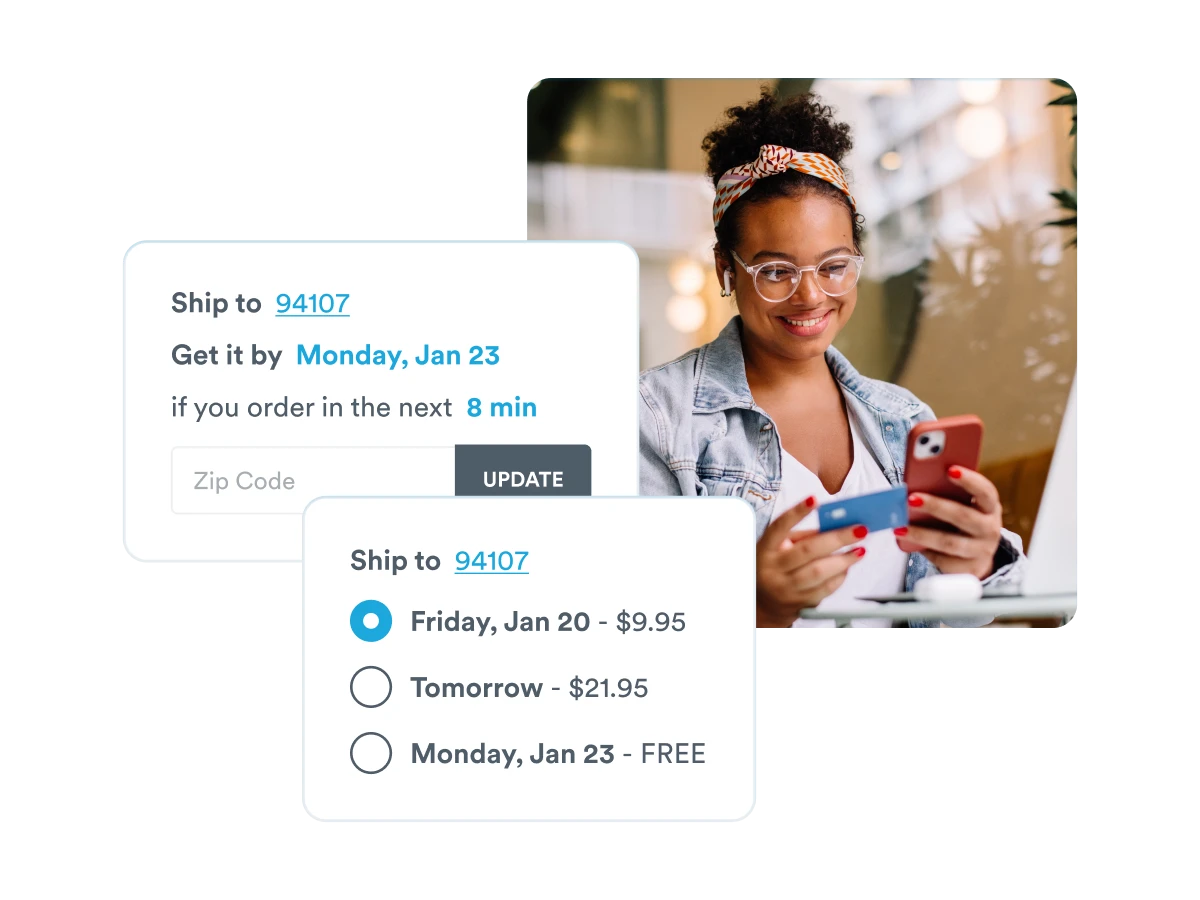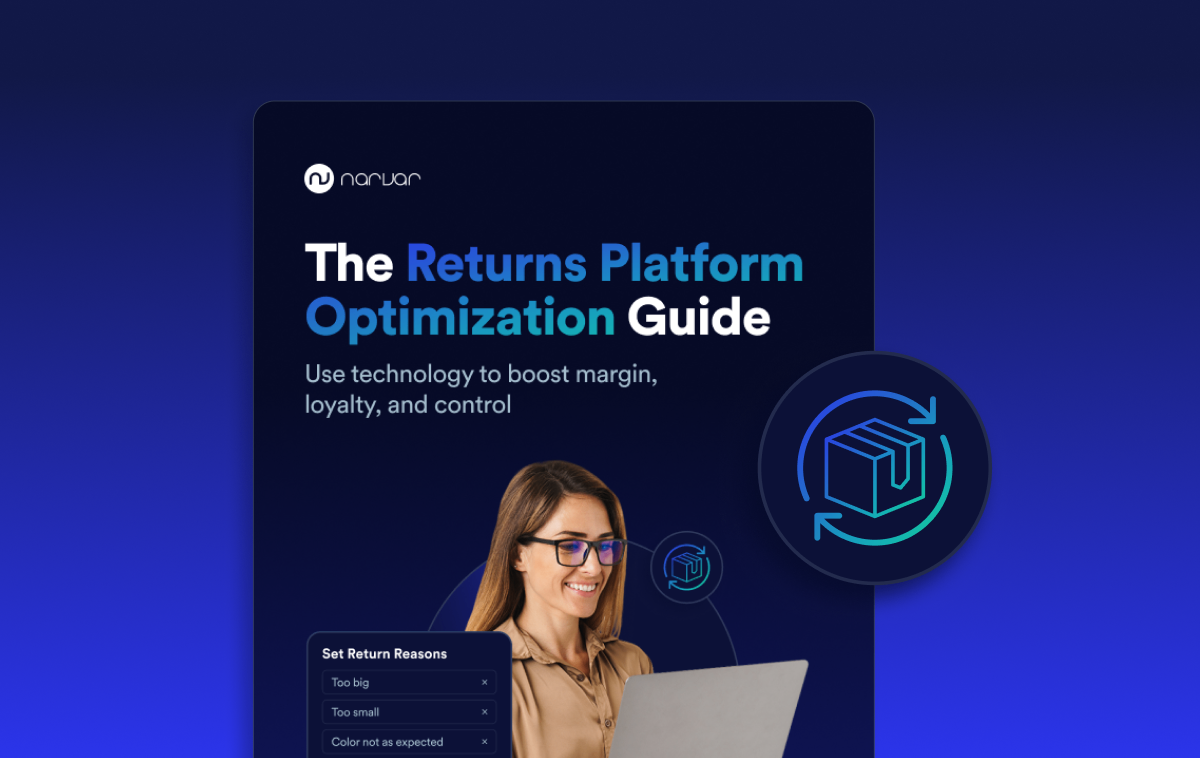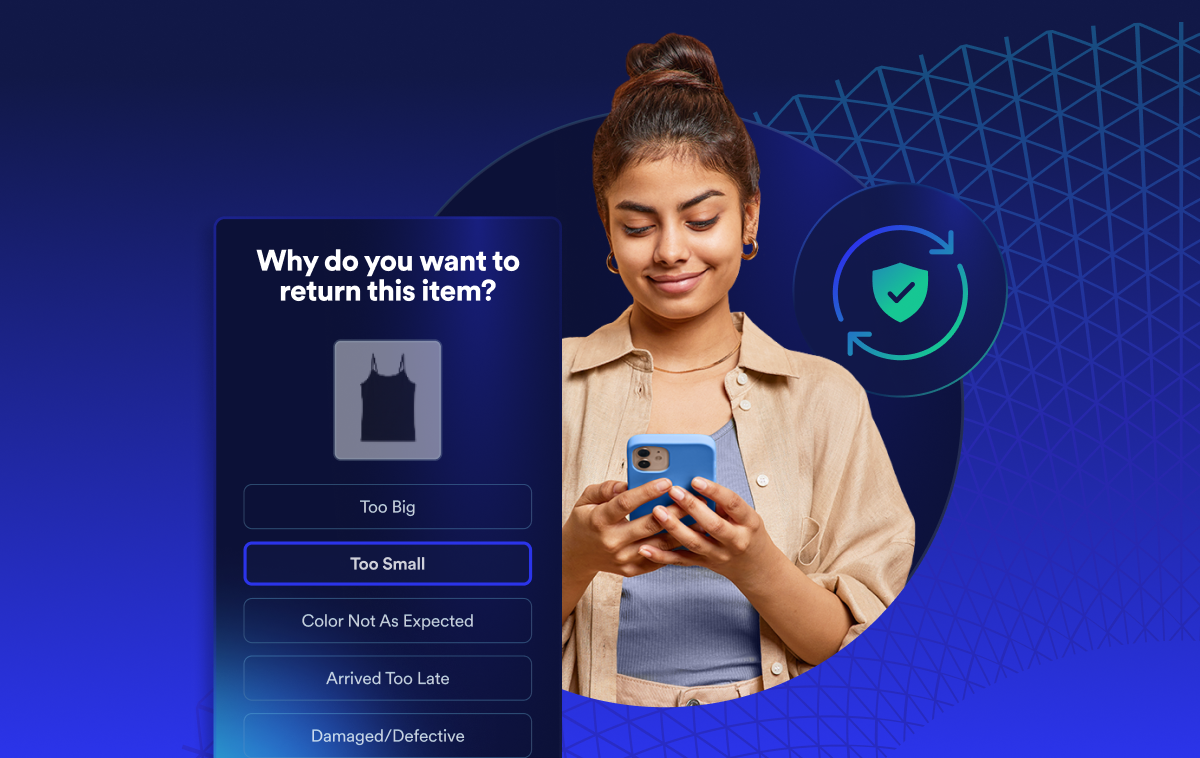

AI-powered delivery date estimates to boost conversion
Give shoppers peace of mind and protect and grow your bottom line
Personalized tracking experiences to build brand loyalty
Returns and exchanges management to mitigate fraud and reward best customers
Proactive communication to drive customer lifetime value
Delivery claim management to tackle fraud and build trust
Retain more revenue. Build more loyalty.
Every return or claim is a moment of risk — or a chance to recover revenue. Narvar helps retailers retain up to 60% of revenue that might otherwise be lost, using IRIS™-powered intelligence, seamless exchanges, and loyalty-first return flows.










































Deflect ineligible claims automatically
Use IRIS™ AI to automate claims for lost, stolen, or damaged packages and block bad actors and reduce claim payouts by 25%, while rewarding high-trust consumers.

Safeguard against rising abuse
Stop the 52% of consumers who admit to return fraud with AI-driven detection and policy enforcement.

Turn refunds into revenue
Keep up to 60% of revenue with exchanges, store credit, and even/uneven upsell exchanges.

Protect deliveries and build trust
Set clear, accurate delivery expectations up front to reduce support issues and avoid unnecessary returns. Build confidence by keeping every promise you make.

Offload the cost of delivery issues
Shift the financial impact of loss, theft, and damage while keeping every brand interaction seamless. Build stronger trust with fewer refunds and re-ships when promises break.

post-purchase fraud and abuse prevention
AI-powered fraud prevention,
backed by IRIS™
Narvar's proprietary AI intelligence layer, IRIS™, processes billions of consumer interactions annually to detect fraud and abuse in real time.
Explore IRIS™-powered solutions:

AI-powered returns management platform
Narvar Shield enables retailers to automate the returns process, provide customer-friendly return options, identify and mitigate fraudulent returns, and turn the returns experience into a revenue driver.

AI-powered delivery claims management platform
Narvar Assist powers streamlined claims management experiences, protecting brands against unwanted claim spend, and ensuring a great consumer experience.

“Narvar’s IRIS™ and Assist solutions allow us to tap into new levels of personalization and efficiencies in the post-purchase experience. Moreover, the solution enables us to provide an exceptional customer experience while strategically optimizing our policies, streamlining and automating our operations, and reducing fraudulent abuse on both the outbound and returns shipping experience.”


Get more insights from the experts
GET STARTED
Power every moment after the buy
Build trust. Protect margins. Drive growth — “Beyond Buy.”






















